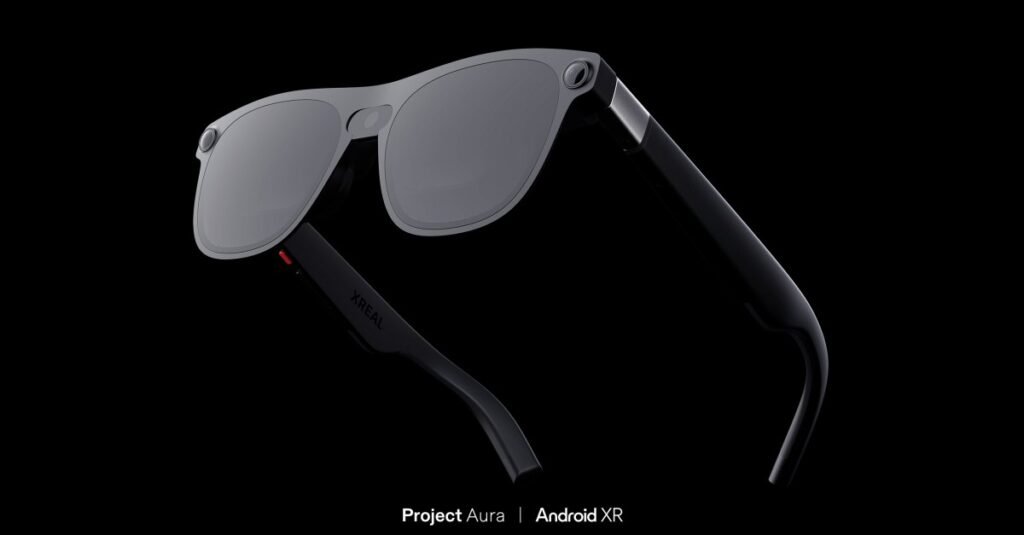Xreal teases Project Aura smart glasses for Android XR
The Google smart glasses era is back, sort of. Today, Google and Xreal announced a strategic partnership for a new Android XR device called Project Aura at the Google I/O developer conference.
This is officially the second Android XR device since the platform was launched last December. The first is Samsung’s Project Moohan, but that’s an XR headset more in the vein of the Apple Vision Pro. Project Aura, however, is firmly in the camp of Xreal’s other gadgets. The technically accurate term would be “optical see-through XR” device. More colloquially, it’s a pair of immersive smart glasses.
Xreal’s glasses, like the Xreal One, are like embedding two mini TVs into what looks like a regular — if a bit chunky — pair of sunglasses. Xreal’s previous gadgets let you plug into a phone or laptop and view whatever’s on the screen, be it a show or a confidential document you want to edit on a plane. The benefit is that you can change the opacity to view (or block out) the world around you. That’s the vibe Project Aura’s giving off, too.
Details are sparse — Xreal spokesperson Ralph Jodice told me we’ll learn a bit more at Augmented World Expo next month. But we know it’ll have Gemini built-in, as well as a large field-of-view. In the product render, you can also see what looks like cameras in the hinges and nose bridge, plus microphones and buttons in the temples.
That hints at a hardware evolution compared to Xreal’s current devices. Project Aura will run a Qualcomm chipset optimized for XR, though we don’t know exactly which one. Like Project Moohan, Project Aura is counting on developers to start building apps and use cases now, ahead of an actual consumer product launch. Speaking of, Google and Xreal said in a press release that Android XR apps developed for headsets can be easily brought over to a different form factor like Project Aura.
Back when I first demoed Android XR, I was told that while Google had built prototype glasses, the plan was to work with other partners to produce a viable product. That demo also made it abundantly clear that it viewed XR devices as a key vehicle for Gemini. So far, everything we know about Project Aura is aligned with that strategy. Meaning, Google’s approach to this next era of smart glasses is similar to how it first tackled Wear OS — Google provides the platform, while third parties handle the hardware. (At least, until Google feels like it’s ready to jump into the fray itself.) That makes a ton of sense given Google’s fraught history with smart glasses hardware. But given the momentum we’ve seen through Project Astra and now, Android XR making it into the main Google I/O keynote? “Google” smart glasses are back on the menu.
You may be interested

Iran’s supreme leader makes first public appearance since Iran-Israel war started
new admin - Jul 06, 2025Iran’s Supreme Leader Ayatollah Ali Khamenei on Saturday made his first public appearance since the 12-day war between Israel and…

How a Colorado restauranteur leaped into action when tariffs hit food prices
new admin - Jul 06, 2025[ad_1] The price of avocados from Mexico, a mainstay at both restaurants, has doubled from about $45 to $50 per…

Centrist Rep. Don Bacon is done with Congress — but keeping the door open on a presidential bid
new admin - Jul 06, 2025[ad_1] WASHINGTON — Centrist Rep. Don Bacon, one of the most vulnerable Republicans in the House, said this week he…
































